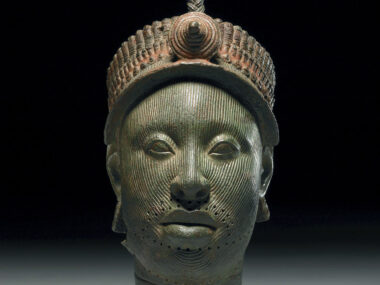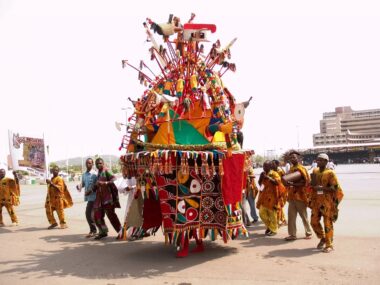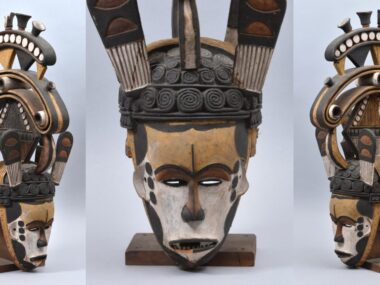Introduction:
Nestled within the lush forests of present-day southern Nigeria, the Benin Empire as soon as stood as a beacon of civilization, wealth, and energy in West Africa. With its origins relationship again to the eleventh century, the Benin Empire flourished for hundreds of years, leaving an indelible mark on the area’s historical past and tradition. On this exploration, we delve into the rise, achievements, and enduring legacy of the Benin Empire, uncovering its pivotal function in shaping the course of African historical past.
Origins and Early Improvement:
The roots of the Benin Empire could be traced again to the Edo individuals, who settled within the area across the eleventh century. Over time, these communities coalesced right into a centralized kingdom underneath the management of the Oba, or king, who held each political and religious authority. The Oba’s courtroom, adorned with intricate bronze sculptures and artistry, grew to become a middle of cultural patronage and non secular worship.
Growth and Governance:
Beneath the management of bold rulers, the Benin Empire expanded its territory via conquest and diplomacy, forging alliances with neighboring states whereas subjugating others. The empire’s army prowess, characterised by extremely disciplined infantry and revolutionary techniques, enabled it to dominate commerce routes and set up profitable industrial networks. At its zenith, the Benin Empire managed an enormous swath of land, stretching from present-day Nigeria into components of modern-day Togo and Ghana.
Financial Prosperity:
Central to the Benin Empire’s success was its thriving financial system, pushed by agriculture, commerce, and craftsmanship. The dominion’s fertile lands supported large-scale farming, yielding bountiful harvests of crops similar to yams, cassava, and palm oil. Moreover, Benin’s strategic location alongside commerce routes facilitated the change of products similar to ivory, pepper, and textiles with retailers from throughout Africa and past. Expert artisans, famend for his or her mastery of bronze casting, produced beautiful sculptures and artifacts coveted by collectors worldwide.
Cultural Flourishing:
The Benin Empire’s cultural heritage was wealthy and numerous, encompassing artwork, faith, and oral traditions. Royal courtroom ceremonies, replete with colourful regalia and ceremonial rites, symbolized the Oba’s divine authority and the dominion’s unity. Faith performed a central function in Benin society, with worship centered on ancestral veneration and the veneration of deities similar to Olokun, god of the ocean, and Osanobua, the supreme creator. The empire’s creative legacy, epitomized by its iconic bronze plaques and sculptures, mirrored the sophistication and ingenuity of Benin craftsmen.
Legacy and Affect:
Though the Benin Empire finally succumbed to European colonization within the late nineteenth century, its legacy endured via its cultural contributions and historic significance. The empire’s creative achievements proceed to encourage up to date African artists and students, serving as a testomony to the resilience and creativity of Benin’s individuals. Furthermore, the empire’s administrative buildings and governance traditions left an enduring imprint on subsequent African kingdoms and polities, shaping the continent’s political panorama for hundreds of years to return.
Conclusion: The story of the Benin Empire is a testomony to the ingenuity, resilience, and cultural richness of Africa’s previous civilizations. From its humble origins to its eventual decline, the empire’s journey displays the complexities and dynamism of human historical past. As we speak, as we replicate on the legacy of the Benin Empire, we have a good time its contributions to the tapestry of African heritage and reaffirm its enduring significance in shaping the continent’s collective id.











1 comment
Quite insightful… a good read